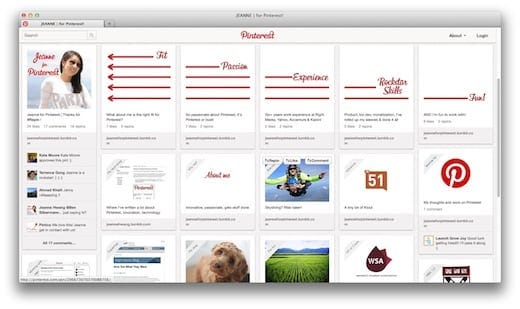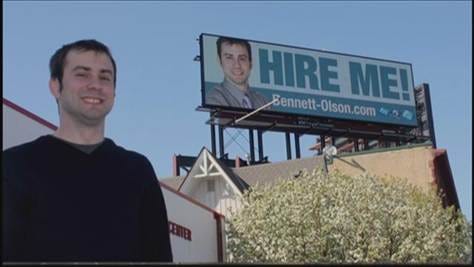What you can't fake
A short post on how the world has moved from "tell me" to "show me" - at least at the very top performing and admired organizations
My good friend Eric Friedman previously shared a really great story that’s worth repeating. It’s about his experience getting hired by renowned New York VC firm Union Square Ventures years ago:
One of the things that stands out to me the most during a pivotal second round interview I had at Union Square Ventures. I sat down with one of the partners Brad Burnham, and presented my resume. He told me to hang on to it and he just wanted to chat.
When I pressed him as to why, he responded with something I will never forget which went something like this; “You can work really hard on crafting a well written, organized, resume with bullet points of accomplishments – but you can’t fake 500 blog posts.”
I was struck by this because I had never thought of things this way before. He was more interested in how I viewed the world (and subsequently the companies in it) rather than my list of things I think went well. Furthermore, he had already done his own homework seeing my previous employment history on the web (on LinkedIn)
Of course, since then Eric has moved on do many cool things at a variety of tech firms.
This is a story you should pay attention to because it’s not just true for individuals, it’s equally true for your business. Eric has obvious passion and dedication for what he does and proves it through his actions. Due to this, his resume wasn’t really necessary.
It’s not such a different story when someone is ready to buy one of your products. Just like Brad had already done his homework on Eric, your potential employers (and customers!) are doing their homework on you.
You can hand them the sell sheet or resume, but that isn’t what persuades smart people. They already know about you and your product. They’ve already searched and looked at both what you’re saying and what others say. And they’re not just looking for product-specific content, they’re seeking your passion and dedication. Is what’s out there something that obviously can’t be faked? If not, it’s no surprise you’re not achieving results.
Anyway, back to individuals - it might not need to be thousands of blog posts for you to stand out, if you get creative there are plenty of ways to show you’re remarkable and start conversations. Since we’re in the middle of a “great resignation” (even I recently left my startup post, more on that here if curious) following are just a few past examples I thought were fun to get you thinking on how to stand out. Again these initiatives are so great as even before being hired it shows interest and early dedication to something. Those things matter.
Jeanne Hwang creatively uses the platform she wants to work for
The Next Web previously shared the story that Jeanne put together a visual resume on Pinterest. The concept itself is clever and anyone looking to work for a specific platform should follow Jeanne’s example of demonstrating fluency in it. It ended up landing Jeanne a job offer.
Bennett Olson buys billboard time that points to his domain
MSNBC previously shares the story on Bennett Olson who paid $300 for an 8-second time slot on an electronic billboard near downtown Minneapolis. The ad was live for 24 hours, in the mix with other ads on the billboard. The billboard appears above and is simple in execution but smart for someone seeking a local position (although perhaps he could have quickly qualified what type of job he was seeking). More importantly than the billboard itself, all he needed to do was to take a photo of the billboard for the internet and that was a fun enough artifact to get press. Shortly after he accepted a job in sales and marketing at Laser Design & GKS Services, a 3D scanning company in Bloomington.
Alec Brownstein used AdWords to land dream job
The YouTube video Alec created really explains it best:
According to Mashable, Alec paid a total of $6 to run ads against vanity searches of target executive names. Not only was this cost effective, it showed off his technology-savvy / understanding of his audience. That he packaged it up into a video that resulted in significant press was a nice bonus. Of course, while these are all great ways to get noticed, you also need to have the qualifications to back up your creativity. But if you’re facing heavy competition, an idea like the above to stand out and open a discussion is smart.
Simone Fortunini, modeled his resume after the Google Analytics interface
Obviously as a former member of the Google Analytics team I thought this was cool. But even beyond that, as a marketer overall it was impressive to see how he marketed himself: an underrated but critical skill. He was even featured in tech media for his creativity here. This is what modern marketers need to do to succeed, and Simone joins a growing list of those smart enough to go beyond the resume. Don’t just tell us, show us.
A resume is necessary insofar as it’s really your ‘back of the baseball card’ to show a brief history of what you’ve done in life. That’s all well and good. It’s easy to do, and you should have one that is concise and to the point (no more than 1 page for nearly everyone in corporate America is a hill I’ll die on). But if you’re new to a sector or really interested in getting a conversation going with an in-demand firm, you might want to think creatively about how you can get attention of the right decision makers.






Blog posts as Proof of Work.
"Is this blockchain?" ^_^ /s